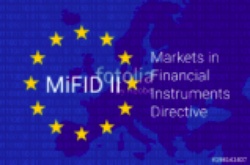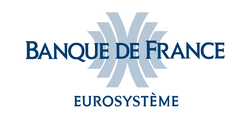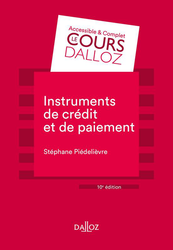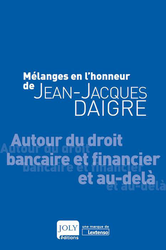Sept. 30, 2021
Thesaurus : Soft Law
► Référence complète : Parlement européen, Preventing money laundering in the banking sector reinforcing the supervisory and regulatory framework, 30 septembre 2021.
___
________
Feb. 24, 2021
Thesaurus : Jurisprudence
Full reference: Autorité de Contrôle Prudentiel et de Résolution (French Banking Regulator), Commission des sanctions (Commission of sanctions), 24th of February 2021, ING Bank France, procedure n°2020-02
Read the decision (in French)
In this decision, the ACPR Sanctions Commission condemns IGN Bank France to a reprimand and a financial penalty of 3 million euros because of the inadequacy of its measures to fight corruption, money laundering and financing of terrorism.
Extract from the decision summarizing ING France's breaches of its Compliance obligations to fight against corruption, money laundering and financing of terrorism:
"At the time of the on-site check, ING France's risk classification was incomplete and ineffective (grievance 1) and its system for monitoring its business relations (complaint 2) and their operations (grievance 4) presented serious deficiencies, as well as its organization and procedures for fund transfers (grievance 3). The updating of customer knowledge was insufficient (grievance 5), as were the detection of PEPs and the implementation of measures due diligence for this category of clientele (grievance 6). For the implementation of its due diligence obligations, numerous shortcomings were noted, whether these were breaches of the obligation to carry out a reinforced examination (grievance 7) or breaches of the obligation to send Tracfin a DS, initial (grievance 8) or additional (grievance 9). Finally, the detection of persons subject to an asset freezing measure was not fully effective (grievance 10) " (our translation of the decision which is only available in French).
Feb. 3, 2021
Teachings : Banking and Financial Regulatory Law - Semester 2021

Résumé de la leçon : L'Europe est avant tout et pour l'instant encore une construction juridique. Elle fut pendant longtemps avant tout la construction d'un marché, conçu politiquement comme un espace de libre circulation (des personnes, des marchandises, des capitaux). C'est pourquoi le Droit de la Concurrence est son ADN et demeure le coeur de la jurisprudence de la Cour de justice de l'Union européenne, qui tient désormais l'équilibre entre les diverses institutions, par exemple la Banque Centrale Européenne, dont les décisions peuvent être attaquées devant elle. Mais aujourd'hui le Droit de l'Union européenne se tourne vers d'autres buts que la "liberté", laquelle s'exprime dans l'immédiat, notamment la "stabilité", laquelle se développe dans le temps. C'est pourquoi la Banque y prend un si grande importance.
En outre, face aux "libertés" les "droits" montent en puissance : c'est par les institutions juridiques que l'Europe trouve de plus en plus son unité, l'Europe économique et financière (l'Union européenne) et l'Europe des droits humains (le Conseil de l'Europe au sein duquel s'est déployée la Cour européenne des droits de l'Homme) exprimant les mêmes principes. C'est bien à travers une décision prenant appui sur le Droit de la concurrence que la Commission européenne le 18 juillet 2018 a obligé Google à concrétiser le "droit d'accès" à des entreprises innovantes, apte à faire vivre l'écosystème numérique, tandis que le Régulateur financier doit respecter les "droits de la défense" des personnes qu'il sanctionne.
Aujourd'hui à côté de l'Europe économique se développe en même temps par des textes une Europe bancaire et financière (on ne sait pas si par le Droit - par exemple le droit de la propriété intellectuelle - existera une Europe industrielle).La crise a fait naître l'Europe bancaire et financière. L'Union bancaire est issue de Règlements communautaires du 23 novembre 2010 établissant des sortes de "régulateurs européens" (ESMA, EBA, EIOPA) qui donnent une certaine unité aux marchés financiers qui demeurent nationaux, tandis que les entreprises de marché, entreprises privées en charge d'une mission de régulation, continuent leur déploiement selon des techniques de droit privé. L'Union bancaire est née d'une façon plus institutionnelle encore, par trois piliers qui assurent un continuum européen entre la prévention des crises, la résolution des crises et la garantie des dépôts. En cela, l'Europe bancaire est devenue fédérale.
Sur les marchés de capitaux, des instruments financiers et des titres, l'Union européenne a utilisé le pouvoir que lui confère depuis la jurisprudence Costa et grâce au processus Lamfallussy d'une sorte de "création continuée" pour injecter en permanence de nouvelles règles perfectionnant et unifiant les marchés nationaux. C'est désormais au niveau européen qu'est conçu la répression des abus de marché mais aussi l'information des investisseurs, comme le montre la réforme en cours dite "Prospectus 3". A l'initiative de la Commission Européenne, les textes sont produits en "paquet" car ils correspondent à des "plan d'action " . Cette façon de légiférer est désormais emprunté en droit français, par exemple par la loi dite PACTE du 29 avril 2019. Cette loi vise - en se contredisant parfois - à produire plus de concurrence, d'innovation, à attirer l'argent sur des marchés dont l'objectif est aussi la sécurité, notion d'égale importance que la liberté, jadis seul pilier du Droit économique. Conçue par les but, La loi est définitivement un "instrument", et un instrument parmi d'autres, la Cour de Justice tenant l'équilibre entre les buts, les instruments et les institutions.
La question du "régulateur" devient plus incertaine : la BCE est plus un "superviseur" qu'un "régulateur" ; le plan d'action pour une Europe des marchés de capitaux ne prévoit pas de régulateur, visant un capitalisme traditionnelle pour les petites entreprises (sorte de small businesses Act européen)
Revenir à la présentation générale du cours
Se reporter au plan général du cours
Utiliser les matériaux ci-dessous pour aller plus loin et préparer votre conférence de méthode.
Dec. 10, 2020
Thesaurus : 03. Conseil d'Etat
Il résulte clairement de l'article 6 du règlement (UE) n° 2016/679 du 27 avril 2016 (dit " RGPD ") qu'un traitement de données à caractère personnel ne satisfait aux exigences du règlement, dès lors qu'il n'est nécessaire ni au respect d'une obligation légale à laquelle le responsable du traitement est soumis, ni à l'exécution d'une mission d'intérêt public ou relevant de l'exercice de l'autorité publique dont est investi le responsable du traitement, ni à la sauvegarde des intérêts vitaux de la personne concernée ou d'une autre personne physique, que si la personne concernée a consenti au traitement de ses données, sauf à ce que le traitement soit nécessaire à l'exécution d'un contrat auquel la personne concernée est partie ou à l'exécution de mesures précontractuelles prises à la demande de celle-ci, ou à ce qu'il soit nécessaire aux fins des intérêts légitimes poursuivis par le responsable du traitement ou par un tiers, à la condition, dans ce dernier cas, que ces intérêts légitimes puissent être regardés comme prévalant sur les intérêts des personnes concernées ou sur leurs libertés et droits fondamentaux.
Oct. 14, 2020
Teachings : Compliance Law

Résumé de la leçon.
Le Droit de la Compliance semble être synonyme d"extraterritorialité, en ce qu'il se fit connaître d'une façon spectaculaire en 2014 par la décision américaine sanctionnant la banque française BNPP. L'on a dès lors souvent assimilé "Compliance" et extraterritorialité du Droit américain, englobant les deux dans la même opprobre.Celle-ci est par exemple d'une grande violence dans le rapport dit "Gauvain" de 2019. Mais sauf à croire que le Droit n'est que l'instrument pur du Politique, en raison des "buts monumentaux" poursuivis par le Droit de la Compliance, celui-ci ne peut avoir en tant qu'instrument qu'une portée extraterritoriale, sauf à être utilisé par une Autorité locale pour ne servir qu'un but local. Dans cette hypothèse, précise et restreinte, l'extraterritorialité du Droit de la Compliance doit être combattue, ce qui est fait par la Cour de la Haye dans sa jurisprudence de 2018. Mais pour résoudre cette question particulière, l'on risque de détruire l'idée même de Droit de la Compliance, lequel suppose l'extraterritorialité. Et au moment même où le continent asiatique est en train d'utiliser le Droit de la Compliance dans une définition mécanique pour mieux s'isoler.
Si l'on prend les autres sujets sur lesquels porte le Droit de la Compliance, lequel excède la question des embargos, l'on peut même soutenir qu'il a été fait pour ne pas être brider par les territoires, lesquels sont à la fois l'ancrage des Etats et leur intrinsèque faiblesse. L'internalisation dans les entreprises permet cela. Elle le permet tout d'abord par le mécanisme de "l'autorégulation". En effet, si l'on fait un lien, voire une identification entre la Compliance, l'éthique et l'autorégulation, alors la question des frontières ne se pose plus. Ainsi, l'entreprise s'auto-instituant non seulement comme un "néo-constituant" mais comme un ordre juridique complet, y compris dans le règlement des différents et dans les voies d'exécution (enforcement par le bannissement). La question de l'efficacité est donc réglée mais ouvre alors celle de la légitimité. C'est pourquoi l'Europe a vocation à porter une conception extraterritoriale d'une définition pourtant européenne de ce qu'est le Droit de la Compliance. C'est ce à quoi les arrêts de la Cour de justice de l'Union européenne du 24 septembre 2019 viennent de mettre un coup d'arrêt.
Se reporter à la Présentation générale du Cours de Droit de la Compliance.
Consulter le Dictionnaire bilingue du Droit de la Régulation et de la Compliance et la Newsletter MAFR - Law, Compliance, Regulation.
Consulter la Bibliographie générale du Cours de Droit de la Compliance
Consulter la bibliographie ci-dessous, spécifique à cette Leçon relative aux enjeux pratiques du Droit de la Compliance
Sept. 13, 2020
Thesaurus : Doctrine
►Référence complète : A. Maymont. ”Le droit de la compliance au secours de la stabilité financière”. Revue Banque, Revue Banque édition, 2020, pp. 50-53.
____
►Résumé de l'article : L'article reprend la définition du Droit de la Compliance comme ce qui prévient les risques de systèmes, notamment les "risques d'instabilité" qui affectent tout particulièrement les risques financiers, lesquels sont désormais principalement extra-financiers, notamment les cyber risques et les risques environnementaux et climatiques.
Il rappelle que le Droit de la Compliance incorpore le principe juridique de stabilité et confie aux autorités publiques le pouvoir d'inférer dans les contrats pour donner primauté à celui-ci. En matière de stabilité financière, c'est notamment l'ACPR et l'AMF qui le font.
Il souligne que pour être efficace, les régulateurs incitent les entreprises à coopérer. Leur action se justifie par l'ordre public financier, lequel évolue, le principe juridique de stabilité permet aux Autorités d'écarter les règles juridiques ordinaires, notamment la liberté contractuelle des banquiers, l'interdiction des ventes à découvert pendant le Covid étant une illustration de cela.
________
Sept. 10, 2020
Newsletter MAFR - Law, Compliance, Regulation

Full reference: Frison-Roche, M.-A., Responding to an email with "serious anomalies",transferring personal data, blocks reimbursement by the bank: French Cour de cassation, July 1st 2020, Newsletter MAFR - Law, Compliance, Regulation, 10th of September 2020
Read by freely subscribing other news of the Newsletter MAFR - Law, Compliance, Regulation
Summary of the news
"Phishing" is a kind of cyber criminality aiming to obtain, by sending fraudulent emails which look like to those sent by legitimate organisms, recipient's personal information in order to impersonate or steal him or her. As it is difficult to find the authors of "phishing" and to prove their intentionality in order to punish them directly, on mean to fight against "phishing" could be to entitle banks to secure their information network and, to accompany this obligation with a strong incentive, to convict them to reimburse the victims in case of robbery of their personal data.
In 2015, a client victime of this kind of fraud asked to his bank, the Crédit Mutuel, to reimburse him the amount stole, what the bank refused to do on the grounds that the client committed a fault, transferring its confidential information without checking the email, however grossly counterfeit. The Court of first instance gave reason to the client because although he committed this fault, he was in good faith. This judgment was broken by the Chambre commerciale de la Cour de cassation (French Judicial Supreme Court) by a decision of 1st of July 2020 which states that this serious negligence, exclusive of any consideration of good faith, justifies the absence of reimbursement by the bank.
___
From this particular case, we can draw three lessons:
- The Cour de Cassation states that good faith is not a salient criterion and that, as the bank must react when a banking account is objectively abnormal, the client must react face to an obviously abnormal email.
- The Cour de Cassation describes the repartition of proof burden. Proof obligations are alternatively distributed between the bank and its client. First, the bank must secure its information network but, secondly, the client must take every reasonable measure to preserve its safety. It results from this that, if the email seems normal, phishing damages must be supported by the bank, and more generally of by the firm, while if the email is obviously abnormal, they must be supported by the client, but the burden to prove the abnormality of the email must be supported by the firm and not by the client.
- Such a proof system shows that Compliance Law includes a pedagogic mission by educating each client in order to he or she would be able to distinguish among his or her emails, those which are normal and those which are obviously suspect. This pedagogic dimension, with the legal consequences associated to it, will not stop to spread.
______
Sept. 7, 2020
Newsletter MAFR - Law, Compliance, Regulation

Full reference: Frison-Roche, M.-A., Conflict of interests & "revolving doors": what the European Ombudsman said in May 2020, the European Banking Authority agreed in August.Three lessons, Newsletter MAFR - Law, Compliance, Regulation, 7th of September 2020
Read by freely subscribing other news of the Newsletter MAFR - Law, Compliance, Regulation
Summary of the news:
Supervision and regulation authorities' impartiality and independence are conditioned to the fact that their members do not have any conflict of interest with the sector that they supervise or regulate. Such an absence of conflict of interest is necessary to guarantee a climate of trust between the authority and operators. This supposes that regulation and supervision authority members do not cumulate functions of operator and of regulator/supervision during but also after their mandate in the regulation/supervision authority because the anticipation of a future hiring can influence present decisions.
On 2nd of August 2019, the executive director of the European Banking Authority (EBA) informed the authority of its willingness to become PDG of the Association des marchés financiers en Europe, lobby of the financial sector. EBA approved this perspective. However, "Change Finance", a civil coalition, sized the European Mediator explaining that such a professional reorientation created an inevitable conflict of interest. The European Mediator reacted on 7th of May 2020 through a recommendation saying that although EBA took preventive measures, theses measures are not sufficient with regard to the risks. In this recommendation, the European Mediator also made some general propositions to manage future conflicts of interest:
- The interdiction for senior managers to have positions able to create a conflict of interest for two years.
- The information of senior managers and candidates to senior managers positions of the actual rules.
- The implementation of internal procedures blocking access to confidential information to the member who notified its willingness to occupy later a position able to constitute a conflict of interest with its current position.
In a letter of 28th of August 2020, the president of EBA told to the European Mediator that he accepts these remarks and propositions.
In this particular case, we can draw three lessons:
- The difficult articulation between independence/impartiality (necessary for trust) and regulator/supervisor expertise. The European Mediator and the ABE are agree that the interdiction to get some positions must be limited in time.
- The necessity that everyone can anticipate rules correctly.
- The necessity to preserve legal security.
Aug. 13, 2020
Newsletter MAFR - Law, Compliance, Regulation

Full reference: Frison-Roche, M.-A., Why the decision of the French Constitutional Council of 7.08.2020 about authors of terrorist offences is so informative for Compliance & Criminal Law, Newsletter MAFR - Law, Compliance, Regulation, 13th of August 2020
Read, by freely subscribing, the other news in the Newsletter MAFR - Law, Compliance, Regulation
Summary of the news
On 7th of August 2020, the Conseil Constitutionnel (French Constitutional Court) made a decision concerning the constitutionality of a French law implementing safety measures against authors of terrorist offenses after their sentence. The law permitting to impose, through an act from the administration, various controls or interdiction to communicate with some people for authors of terrorist offenses after the end of their sanction.
Although the Conseil Constitutionnel estimated that such dispositions was disproportionate with regards to the objective, which prompted it to censor the text, it recognized that, since terrorism seriously disturbs public order through intimidation and terror, the fight against terrorism contributes to the objective of constitutional value consisting of preventing attacks on the public order. Thus it is not the nature but the intensity of the proposed measures which pushed the Conseil Constitutionnel to state this text not constitutional. By the way, the Conseil affirms that if the legislator submits it a law whose the measures are more proportionate to the goal, these, although Ex Ante and justified only by the existence of a risk, will be declared in conformity with the Constitution.
The Conseil Constitutionnel confirms here that the fight against terrorism financing is a "monumental goal" of Compliance Law.
Aug. 11, 2020
Newsletter MAFR - Law, Compliance, Regulation

Full reference: Frison-Roche, M.-A., Against money laundering, what time matters? Does it work, between ExAnte and ExPost? (BIL case), Newsletter MAFR - Law, Compliance, Regulation, 11th of August 2020
Read, by freely subscribing, the other news in the Newsletter MAFR - Law, Compliance, Regulation
Summary of the news
The activity of money laundering is detrimental not only in itself but also because it permits the development and the sustainability of other criminal activities such as drug trafficking, weapon trafficking or human beings selling. Fighting against money laundering could permit to indirectly fight against these underlying activities, by the way very difficult to fight. Thus, the fight against money laundering has become a "monumental goal", which justifies the adoption of tools sometimes much more powerful than those used by classical criminal Law. For the sake of efficiency, the legal obligation to prevent money laundering is given to every body able to do it, as banks, real estate agents or gaming society, under the penalty of sanction.
On 10th of August 2020, the Luxembourgish financial market supervisor convicts the International Bank of Luxembourg to pay a fine of 4,5 millions of euros because of weaknesses detected in its process of fight against money laundering. However, when the sanction has been pronounced, the bank had already remedied the weaknesses identified. It is important to observe that what is important for Compliance Law, it is not that a non compliant behavior is punished but rather that the crucial firm modifies its behavior in order to being more efficient in the realization of the "monumental goal", only concern of the public authority. Thus, an Ex Post sanction against the crucial operator is not an end in itself and can be justified only if it permits to incite the crucial operator to act or rather to desincite to do anything. Compliance Law is an Ex Ante legal system.
To go further, read:
- Frison-Roche, M.-A., Le couple Ex Ante - Ex Post, justificatif d'un droit spécifique et propre de la Régulation, 2006 (in French)
Dec. 12, 2019
Thesaurus : Doctrine
Référence complète : Malik, A., La conformité dans les établissements financiers sous le prisme du droit pénal, thèse Toulouse, 2019.
Dec. 5, 2019
MAFR TV : MAFR TV - case

Watch the video explaining the content, meaning and scope of the decision made by the Conseil d'Etat (French Council of State) on November 15, 2019, La Banque Postale v. Autorité de contrôle prudentiel et de résolution (ACPR).
The Autorité de contrôle prudentiel et de résolution - ACPR (French Authority of prudential control and resolution) pronounced a very high sanction, representing 7% of La Banque Postale's net annual result. The breach is constituted by the fact of not having prevented the use of the banking technique of the "money order" which was used to escape the freezing of the assets.
The Conseil d'Etat recalls that by nature if the assets are frozen, it is not possible that anyone is able to dispose of these assets. However, by the use of "money orders", persons targeted by asset freezing decisions, tools used in connection with the fight against money laundering and the fight against terrorism, had been able to circulate money to from accounts managed by La Banque Postale, of which they were not customers.
This case was not foreseen at the time when the Bank Postale was sanctioned by the ACPR for not having prevented such a use, the texts forcing it under its obligations of "conformity" to prevent this behavior of violation background gels on the part of his customers, but only that.
This case of a use of a means by a person who is not a customer of the bank was not foreseen at the time when the alleged facts took place and the Bank claims not to be able to be punished since in the repressive matter it is necessary to respect the principle of non-retroactivity of the texts, - in this case texts later supplemented to aim at such an assumption -, the non-retroactivity being a major principle itself related to the principle of the legality of the offenses and the penalties.
We are therefore in the hypothesis of a silence of the texts.
What to decide? Can the Bank be condemned and so heavily or not by the ACPR?
The Bank does not think so.
It acted against this sanction decision firstly because those who used these money orders were not its clients. It has strong reasons to avail itself of this fact, since subsequently the texts needed to be modified to aim not only the use of this technique of money order by those who have a count in the bank and also by those who act with cash through the bank without a count, that is to say without an account holder to look at. Because we are in criminal matters, the restrictive interpretation and non-retroactivity of the text should lead to follow the reasoning of the Bank. But the Conseil d'Etat does not because it considers that implicitly but necessarily even with this subsequent modification of the text, it had aimed that use before.
By this way, the Conseil d'Etatuncil develops a very broad concept of the obligations of banks in their role in the fight against money laundering, and therefore a very repressive point of view, which permeates their "obligation of Compliance". Thus, when the bank also argues that it can not be sanctioned since for it this activity of money order is deficit and that it did not cause harm to its customers even by assuming badly its obligations, theConseil d'Etat stresses that this is not a pertinent perspective since the Compliance obligations falls within the "overriding general interest of protection of public order and public security, to which the freezing of assets legislation responds".
_____
Read the judgment of the Conseil d'Etat ( in French).
June 26, 2019
Blog

La Chambre commerciale de la Cour de cassation a rendu un arrêt le 17 avril 2019, à propos de la société Créatis.
Le cas est le suivant : par des emprunts divers, un couple se retrouve endetté à hauteur de 66.000 euros. Ne pouvant sans doute faire face à ce que cela représente comme charge mensuelle cumulée, ils recourent à une société qui propose un "prêt de restructuration". Lorsque celui-ci a été conçu, la situation professionnelle familiale, professionnelle et financière du couple lui laisse en disponibilités mensuelles environ 1.800 euros par mois. Un prêt de restructuration consiste à regrouper la totalité des crédits et à allonger dans le temps des remboursements, puisque le remboursement doit s'opérer désormais sur 144 mensualités, c'est-à-dire 12 ans.... Certes, la charge mensuelle tombe ainsi d'environ 2.000 euros pour le couple à environ 780 euros. Ce qui devait arriver arriva : le couple ne fît pas face aux échéances et fût poursuivi.
Pour sa défense, les débiteurs font valeur que leur situation était caractéristique d'un "endettement excessif", puis qu’avec une mensualité de 780 euros et 3 enfants à charge, ils ne pouvaient pas rembourser et que le prêteur devait les mettre en garde sur l'inadéquation entre le prêt de restructuration proposé et leur situation, puisque la mensualité excédait le tiers de leur disponibilité et qu'ils étaient non-avertis. Or, cette mise en garde n'avait pas été faite.
Les juges de première instance donnent raison à l'établissement de crédit qui a agi en exécution forcée mais le jugement est infirmé par la Cour d'appel de Grenoble,qui par un arrêt du 19 septembre 2017, considère à l'inverse qu'il y a eu manquement à l'obligation de conseil, déboute l'établissement de crédit de sa demande en exécution du contrat.
La Cour de cassation casse l'arrêt des juges du fond.
La solution est la suivante : La Chambre commerciale relève qu'un "crédit de restructuration, qui permet la reprise du passif et son rééchelonnement à des conditions moins onéreuses, sans aggraver la situation économique de l'emprunteur, ne crée pas de risque d'endettement nouveau". En conséquence de quoi, la Cour d'appel ne pouvait pas statuer ainsi.
Les enseignements que l'on peut en tirer :
- Cet arrêt très bref n'explicite pas davantage le motif de la cassation.
- Est-ce à dire que toutes ces techniques proposées par des sociétés qui diffusent via tous les médias des offres quasiment miraculeuses et promettant à des personnes non-averties qu'elles sortiront ainsi de leur situation quasiment désespérée par cette solution quasiment magique qu'est le regroupement de crédit ? A lire l'arrêt de la Cour de cassation, c'est ce qu'il faut comprendre.... Le raisonnement est de nature arithmétique : puisque par nature les "conditions sont moins onéreuses", la situation du débiteur n'est pas "aggravée" et il ne peut donc pas y avoir de "risque d'endettement nouveau". Ainsi, s'il n'y a pas d'obligation de mise en garde, c'est parce qu'il n'y a pas de sujet.
- Mais est-ce à dire que la Cour d'appel avait entièrement tort ? Sans doute car s'il est vrai qu'il n'y a pas de risque "d'endettement nouveau", il y a un risque de persistance d'incapacité à rembourser. Les chiffres et la situation des débiteurs qui persisteront à l'avenir (charges familiales, loyer, alimentation requise des enfants, situation de handicap d'un parent) fait que le prêteur sait qu'ils ne pourront pas faire face à ces échéances, même diminués. De cela, ne devaient-ils pas les mettre en garde ?
- S'il l'avait fait, alors les débiteurs, conseillés par les travailleurs sociaux, n'auraient sans doute pas persisté dans une voie présentée comme une solution à leurs problèmes, alors qu'elle demeurait structurellement une impasse. Cela ne vaut pas pour tous les prêts de restructuration, mais dans le cas présent, si. Ils auraient recouru à une commission de surendettement, structure publique mise en place par la Loi et non par le marché pour ce type de situation.
- Il aurait été bénéfique que la Cour de cassation rende un arrêt d'espèce et s'exprime ainsi. Car un esprit de justice va sans doute dans ce sens-là : un principe de validité de ces pratiques de marché, car en principe cela est bénéfique pour le débiteur, sauf si dans certaines situations il passe simplement d'une incapacité de payer les échéances à une autre incapacité de payer les échéances. Et dans ce cas-là, le préteur très particulier que sont les établissements spécialisés dans le regroupement de crédit doit le mettre en garde, n'est-ce pas ?
_____
April 15, 2019
Publications : Chronicles MAFR - Compliance Law

► Full Reference : Frison-Roche, M.-A., Compliance et personnalité, in Recueil Dalloz, n°11/7812, avril 2019, pp. 604-606
_____
► Chronique English Summary: Compliance is often presented as a set of mechanical procedures, in which human beings are absent. It's the opposite.
It is an Information Law, in its function of preventing systemic risks and a markets protection Law, which poses the requirement of knowing “truly” the person who is “relevant”, generalizing what Company or Competition Law had partially admitted.
Even more, beyond systems, Compliance Law, insofar as it is a Protection Law, aims to protect human beings, directly or indirectly concerned, establishing them as legal persons, true final subjects of law of this new branch of Law.
____
📝read the chronique (in French).
____
____
📖 read the other chroniques Chronique MAFR Droit de la Compliance
________
April 8, 2019
Conferences

Cette participation à la table-ronde présidée par Andrea Enria, chairman du Supervisory Board du Single Supervisory Mecanism de la Banque Centrale Européenne qui a pour thème Competition and Regulation in the financial sector.
Elle-même fait partie d'une journée ayant pour thème Competition in a globalised world: the role of public policies, organisée dans le cadre du G7 France 2019 par la Banque de France et le Ministère de l'économie et des finances.
La conférence et les supports sont en anglais.
Dans la table-ronde, il m'est plus particulièrement demandé d'abord la question de la méthodologie à adopte dans le secteur financier, en raison des nouveaux acteurs digitaux, et des principes à adopter à propos des datas.
Nov. 5, 2018
Thesaurus : Doctrine

► Référence complète : Parléani, G. (coord.), Mélanges en l'honneur du Professeur Claude Lucas de Leyssac, LexisNexis, novembre 2018, 512 p.
____
►Lire la quatrième de couverture et la table des matières.
____
►Parmi les contributions à l'ouvrage :
📝Lire la présentation de l'article de Marie-Anne Frison-Roche : Banque et Concurrence.
📝Lire la présentation de l'article de François Terré : Concurrence et proportionnalité
Lire la présentation de l'article de Pierre-Yves Gautier : Contre le droit illimité à la preuve devant les autorités administratives indépendantes
____
Nov. 5, 2018
Publications

Référence générale : Frison-Roche, M.-A., Banque et concurrence, in "Mélanges en l'honneur du professeur Claude Lucas de Leyssac", LexisNexis, 2018, pp.165-180.
Résumé : Banque et concurrence ne font pas bon ménage. Ce n'est pas tant que les banques feraient figure de récidivistes à propos desquels les autorités de concurrence devraient hausser le ton par des sanctions toujours plus lourdes afin que la leçon concurrentielle soit enfin entendue. Ce sont plutôt deux ordres qui s'affrontent, deux incompréhensions face à face. En effet les banques trouvent adéquat de s'entendre pour que le système bancaire fonctionne. Plus encore, les pouvoirs publics leur demandent un comportement politique en finançant l'économie lorsque celle-ci ne s'appuie pas sur les marchés financiers, voire de lutter contre l'exclusion sociale en pratiquant « l'inclusion bancaire », bastion avancé de la conception de l'entreprise promue par le Plan très politique d'Action pour la Croissance et le Transformation des Entreprises (PACTE). dès lors, comment elles-mêmes auraient-elles un comportement de marché consistant dans un comportement égoïste et d'agression envers leur homologue ?
Si l'on plonge dans ce creuset de l'incompréhension qui engendre le heurt violent entre les banques, qui évoquent leur mission, et les autorités de concurrence, qui se prévalent de la leur, on bute sur l'écueil de la définition même de ce qu'est une banque. L'on peut estimer qu'une banque est un prestataire de services divers, agissant sur des marchés en concurrence ; le droit assure le bon fonctionnement de ceux-ci, les autorités qui gardent l’efficacité des marchés se saisissant des banques qui y exercent leurs activités. Mais si l'on choisit d'insister sur le fait que les banques sont ce qui fait fonctionner l'économie et consolident le lien social, elles sont alors partie intégrante d'un système propre : le système bancaire, lequel est un élément essentiel de la société. La concurrence n'y est plus qu'adjacente.
July 4, 2018
Editorial responsibilities : Direction of the collection "Cours-Série Droit privé", Editions Dalloz (33)

Référence complète : Référence complète : Piédelièvre, S., Instruments de crédit et de paiement, 10ième éd., Coll. "Cours Dalloz-Série Droit privé", Dalloz, 2018., 450 p.
Lire la quatrième de couverture.
Consulter la table des matières.
Consulter l'ensemble de la collection dans lequel l'ouvrage a été publié.
July 3, 2018
Thesaurus : Doctrine

Référence complète : Caprioli, É.A., La blockchain dans la banque et la finance (éléments de réflexion juridique), in Études en l'honneur de Philippe Neau-Leduc, Le juriste dans la cité, coll. « Les mélanges », LGDJ- Lextenso, 2018, pp.189-206.
Lire une présentation générale dans lequel l'article est publié.
Jan. 17, 2018
Thesaurus : Doctrine

Référence complète : Schmidt, D., La société et l'entreprise, Rec. Dalloz 2017, p. 2380.
Résumé : La société est une structure de partage entre les associés du pouvoir et du profit. De nombreuses voix dénoncent un capitalisme financier qui assigne pour but à la société la maximisation du profit et son partage entre les associés ; elles proposent que la société exploitant une entreprise ait pour objectif premier la satisfaction de l'intérêt général commun et elles revendiquent à cette fin un partage du pouvoir entre les associés et les tiers prenant part au développement de l'entreprise. Notre étude ne discute pas ces propositions et revendications qui transforment la notion même de société et invitent à bâtir un droit nouveau des groupements et un nouveau droit de la gestion et du financement des entreprises : elle recense les réformes législatives radicales que ces propositions et revendications impliqueraient.
Dec. 21, 2017
Thesaurus : 08. Juridictions du fond
Dec. 21, 2017
Thesaurus : 07. Cours d'appel
Dec. 13, 2017
Thesaurus : 05.04. Tribunal de Première Instance des Communautés Européennes - Tribunal de Première Instance de l'Union Européenne (Trib.UE)
Dec. 11, 2017
Publications

► Référence complète : Frison-Roche, M.-A., Compliance et confiance, in Mélanges en l'honneur de Jean-Jacques Daigre, Autour du droit bancaire et financier, Joly éditions - Lextenso, déc. 2017, pp.279-290.
____
► Résumé de l'article : Compliance. Confiance. Deux mots qui reviennent de plus en plus souvent sous nos yeux de lecteurs ou à nos oreilles d'auditeurs. Et pourtant ils ne semblent pas bien s'assortir. Ils paraissent même se repousser l'un l'autre.
En effet, la compliance est ce par quoi les autorités publiques font confiance à certains opérateurs privés, non pas en eux-mêmes, mais à leurs capacités structurelles à capter mécaniquement l'information dont ces autorités ont besoin (I).
Cela suppose une vision du monde dans lequel les entreprises sont puissantes et sont seules puissantes mais ne sont pas vertueuses, tandis que les autorités publiques, comme le Ministère public ou les régulateurs, sont faibles mais sont seuls vertueux. Une telle conception de la compliance transforme les entreprises en automates. Une telle vision du monde n'a pas d'avenir : on ne peut faire confiance qu'à des êtres humains, dont il faut accepter le caractère faillible, la compliance étant alors l'expression d'un rapport noué sur une confiance qui se donne à voir entre des opérateurs non mécaniques, à savoir les institutions publiques et les opérateurs privés qui peuvent l'un et l'autre avoir en commun souci d'un intérêt qui les dépasse et que l'on appelait naguère l'intérêt général (II).
____
🚧 Lire le document de travail bilingue servant de base à l'article ici publié.
____
Lire une présentation générale de l'ouvrage dans lequel l'article est publié.
____
____
Oct. 31, 2017
Publications

► Référence complète : D. d' Ambra et M.-A. Frison-Roche, "La résolution bancaire entre droit commun des procédures collectives et droit commun de la régulation", in Mélanges en l'honneur de Jean-Luc Vallens. Liber amicorum, Joly éditions - Lextenso, oct. 2017, p.293 à 303.
____
► Résumé de l'article : En organisant la "résolution bancaire" et en présentant celle-ci comme une "procédure collective spéciale", le Droit a-t-il le front de poser la question : l' État est-il mortel ? Par nature, le droit des successions suppose la mortalité des êtres humains. Par nature, le droit des procédures collectives suppose la mortalité des entreprises. La résolution bancaire a été inventée récemment parce que pourraient mourir des opérateurs économiques peu ordinaires et intimes de l’ État , les banques qui s'adossent à celui-ci et lui empruntent sa puissance de création monétaire. Mais à l'inverse de la représentation que le Droit se fait des êtres humains et des entreprises, le Droit comme la politique supposait l'immortalité de l’ État . Les marchés en évoquant sans cesse la "faillite des États" sont-ils en train de remettre en cause cela ?
La Résolution bancaire, si elle ne devait être qu'un espace de procédure collective, en ce qu'elle serait rattachée à des États eux-mêmes "en difficulté" ouvre cette question-là.
____
📗Consulter une présentation générale de l'ouvrage.
____
🚧Lire le working paper bilingue ayant servi de base à l'article, s'appuyant sur le Dictionnaire bilingue du Droit de la Régulation et de la Compliance, comprenant des références, des notes de bas de page développant certains points et des liens menant vers des documents.
________